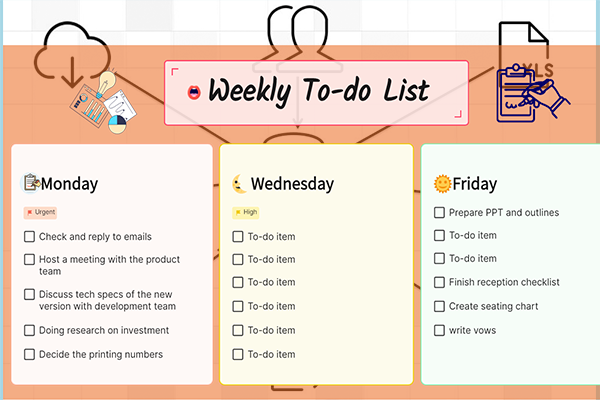Chapter 5: Daily and Weekly Tasks
- Recording Transactions
Why Record Transactions Regularly?
- Keeping your financial records up to date helps you see exactly where your money is going—and coming from—at all times.
- It also prevents a backlog of unrecorded items, which can lead to errors or missed transactions.
Daily Tasks
- Gather Documents
- Collect invoices, receipts, bank statements, or any financial documents from the day.
- Ensure they’re stored in a centralized location, whether digitally or physically.
- Enter Transactions
- Record all sales and purchases in your accounting software or ledger.
- Make sure to debit and credit the correct accounts (e.g., Cash vs. Sales Revenue).
- Check for Accuracy
- Verify amounts and descriptions, ensuring you haven’t switched figures or mislabeled accounts.
Weekly Tasks
- Reconcile Cash & Bank Accounts
- Compare your ledger’s cash/bank balance to your actual bank statement or online banking data.
- Flag any discrepancies (like unrecorded fees, accidental double entries, or missing deposits).
- Review Expense Categories
- Look over any new expenses to confirm they’re posted to the correct account (e.g., Office Supplies vs. Utilities).
- This will help keep your Chart of Accounts clean and consistent.
- Receipts, Invoices, and Bills
Receipts
- Definition: Proof of payment received for a transaction.
- Daily Practice:
- Attach or link receipts to the corresponding transaction in your system.
- Mark the transaction as “paid” and note the receipt’s reference or ID.
Invoices
- Definition: A formal request for payment sent to a customer/client.
- Daily/Weekly Practice:
- Issue Invoices Promptly: Don’t wait; send invoices as soon as a service/product is delivered.
- Track Outstanding Invoices: Maintain a list (an “Aged Receivables” report) so you can follow up on overdue payments.
- Mark Payments: Once payment arrives, update the invoice status to “paid” and record the transaction accordingly.
Bills
- Definition: Statements you receive from vendors for goods or services you’ve purchased.
- Daily/Weekly Practice:
- Log Bills Promptly: Record them in your ledger or accounting system as soon as they come in, noting the due date.
- Schedule Payments: Pay bills before their due dates to avoid late fees and maintain good supplier relationships.
- Reconcile With Bank Transactions: When the payment clears the bank, cross-check it against the recorded bill.
Filing & Organization
- Use either physical folders (organized by date, vendor, or category) or digital storage (scanned documents, cloud folders) to keep everything accessible.
- Consistent naming conventions (e.g., “VendorName_InvoiceNumber_Date”) make it easier to find documents later.
Key Takeaway
Establishing daily and weekly routines for recording transactions and managing receipts, invoices, and bills is vital for accurate bookkeeping. By staying organized and proactive, you reduce the likelihood of errors, late payments, and financial surprises—keeping your books balanced and your business running smoothly.
